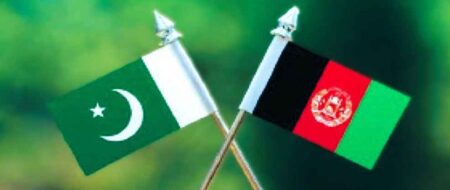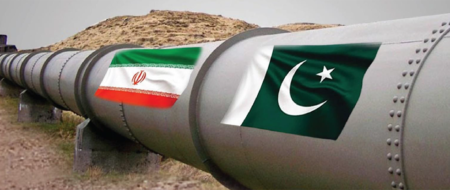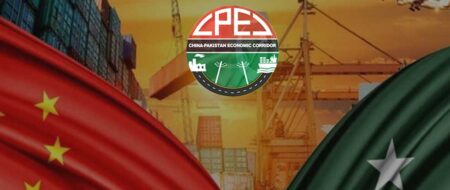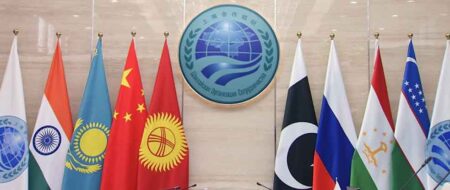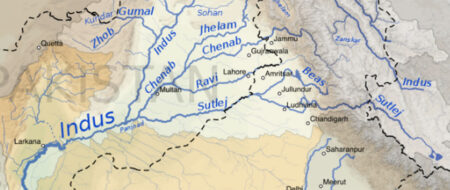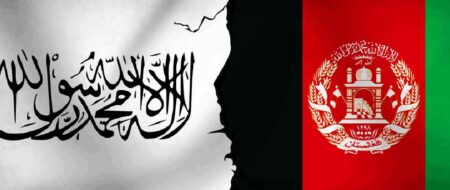Uzbekistan’s Role in Stability and Development of Afghanistan
The “6 plus 3” initiative launched by Uzbek president holds promise for the war torn Afghanistan, emphasizes a leading Uzbek intellectual.
Policy Perspectives , Volume6 , Number1, January – June 2009
Abstract
[Afghanistan’s worrisome security situation, continued dependence on international assistance as well as inadequacy and inefficient use of the received aid necessitate an enhanced coordination between leading international players and Afghanistan’s neigh-bors. Uzbekistan has been promoting economic and trade cooperation with the war-torn country and its recently launched “6 plus 3” initiative holds significant promise in this connection. – Ed.]
The present situation in Central Asia and around it, caused by the dynamics and nature of military-political developments taking place in adjacent regions of South Asia and the Middle East, have increased the importance and necessity of a sustainable system of regional security. The Afghan and Iraq military campaigns have shown interdependence and inter-conditionality of problems in ensuring peace and stability in the neighboring regions of the Euro-Asian continent.
Moreover, in the recent past, a host of new issues have emerged on the global scene which may turn into security threats and put the stability of the Central Asian states at risk. The majority of these can be attributed to the attempts of the USA in the realization of its so-called Greater Central Asia initiative, continued escalation of violence in Afghanistan, continued growth of “religious extremism”, “international terrorism” and drug trafficking etc.
In order to deal with all these factors and subsequent threats, the states of Central Asia need to strengthen their relations with the rest of the world, starting with the key players.
The foreign policy priorities of the Central Asian countries are mainly determined by the growing number and dimensions of non-conventional threats and challenges in the region. In this connection, the countries of the region, including Uzbekistan, realize that military-political stability and establishing of a normal life in Afghanistan are prerequisites to security and stability in Central Asia.
Thus, in Uzbekistan, as well as in the region as a whole, there is a common understanding of the fact that achievement of peace and stability in Afghanistan is the decisive factor for attaining security and ensuing sustainable development in Central Asia. Majority of the issues threatening regional security are linked with the situation in Afghanistan.
In the given context, production and export of narcotics from Afghanistan demand attention as this factor negatively influences the security and development not only of Uzbekistan but all the Central Asian countries and other neighboring states as well. According to the United Nations Office of Drugs & Crime the volume of manufacture of drugs in Islamic Republic of Afghanistan reached a record 8200 tons[1] in 2007, an increase of 34% as compared to the figures of 2006.
If this trend continues in the coming years, production of opium group drugs in Afghanistan will provide approximately 95% of all the world demand for these drugs. It will also increase the global consumption of drugs by at least 30%.
Another negative factor influencing stability in Uzbekistan and other countries of Central Asia is the significant number of small arms in Afghanistan. This is evident from recent activities of various groups, particularly of the so-called “New Taliban”, in southern, southeastern and central provinces of Afghanistan. In this connection, Uzbekistan, together with other states of the world, should undertake even more serious efforts for developing strategic approaches and complex multilateral measures to promote full and irreversible stabilization in Afghanistan.
In Afghanistan it is necessary to put a stop to further militarization and use of force. It is of utmost importance to search for ways of achieving peace and stability by means of demilitarization and socio-economic uplifting with the help of world community.
Social and economic situation of Afghanistan, despite the growth in some sectors of economy during the last years, remains worrisome. In this connection it becomes a major task to solve socio-economic problems, particularly that of unemployment.
The national economy of Afghanistan remains substantially agrarian and about 80% of the workforce is attached with agriculture[2]. At the same time, efficiency of agricultural and industrial sectors in terms of economy is among the lowest. Even in high-crop years agrarian sector does not fully cover food requirements of the population, thus making the country dependent on import of food items. With the rise in prices of food items the world over, one can predict that in the near future the country will face acute food shortage leading to social crisis. Weak structure of mining and manufacturing industries has further worsened the unemployment situation. The rate of unemployment, according to the official figures provided by the Afghan government, has currently reached 40%[3].
Thus, even if there is military-political stability in the country, Afghanistan in the near future will not be able to meet the social and economic requirements of its population and state by itself; continued international economic and humanitarian assistance will remain a key factor in the reconstruction of the country.
Experts are of the opinion that whatever economic growth was recorded in Afghanistan after the collapse of Taliban regime in 2001 was due to the $8 billion provided as international assistance; it promoted partial restoration of agrarian sector, growth of services and formation of separate market institutions. However, the volume of the donor assistance to Afghanistan during 2002-2007 has not exceeded $13 billion when initially $30 billion were promised; of this received amount only about $3.7 billion were given to the Afghan Ministry of Finance. The remaining amount was spent by donors themselves and there is no account of it. It is estimated that approximately 80-85% of the financial assistance has reached Afghanistan as goods and services and basically through nongovernmental organizations (NGOs) and commercial organizations of donor states. Alongside it, more than $1.5 billion were received as so-called “technical assistance”, providing payment to foreign experts and advisers in the Afghan official bodies.
Japan is perhaps the only country which, till now, has been effectively fulfilling its promises and meeting its financial aid obligations to Afghanistan. Tokyo pledged that it will provide $1 billion annually till 2006 and the pledge was executed ahead of schedule in November 2005.
During the period 2001-2007, America pledged $11.4 billion as a part of its long-term obligation to Afghanistan[4]; US has also committed $10.2 billion for FY 2008 and 2009[5]. This year, as claimed by Richard Boucher, the Assistant Secretary of State for South and Central Asia, the United States will provide Afghanistan with economic assistance to strengthen the Afghan government. In particular, more than $500 million will be allocated for increasing the efficiency of the Afghan administration. In addition, more than $91 million will be allocated to the Afghan judiciary at provincial level while $15.4 billion are to be allocated for training of army and police personnel.
However, Kabul complains about performance of the international community in providing financial assistance and considers it ineffective. The Afghan government considers that the effectiveness of donor assistance actually does not exceed beyond 15-20%. This is due to the corruption of international community officials, especially rampant in distribution and management of funds; heads of NGOs and owners of foreign and local commercial organizations participating in implementation of specific economic projects are also a part of this corrupt process.
It is quite obvious that Afghanistan depends heavily on foreign assistance and it is impossible to realize social and economic reconstruction of the country without it. Yet, as majority of foreign experts agree, the management of this assistance is anything but effective. Despite taking several decisions in Bonn, London and at other international conferences, reaching agreements and deciding mechanisms, there is a real lack of coordination.
In the given context it is necessary to review ways of multilateral coordination and it is desirable that it be conducted under the United Nations and the Special Representative of the Secretary General of the United Nations in Afghanistan.
It can be argued that regional countries can also play an instrumental role in strengthening the efforts of the international community, led by the United Nations, for reconstruction of the war-torn country. Increased participation of regional countries can be realized through certain initiatives – like the one taken by the President of the Republic of Uzbekistan, put forward on April 3, 2008 at NATO / CEAP summit in Bucharest. The said initiative calls for restoration of the mechanism of “6 plus 2 Group”, in the expanded format “6 plus 3”[6]. Afghanistan’s neighboring countries can be assigned the task of coordination for an effective utilization of international assistance.
Uzbekistan is taking an active part in efforts of the international community aimed at enhancing stability and sustainable development in Afghanistan[7]. It attaches great significance to friendly and good neighborly relations with this country – necessitated not only by common borders but also by a mutual interest in ensuring peace, stability and progress in the region.
In December 2002, the Government of Uzbekistan, with a view to ensuring effective provision of aid rendered by the world community to Afghanistan, adopted a resolution on opening the Hayraton Bridge at the Uzbek-Afghan border. In November 2003, Ayritom Customs Complex started operating in Termez city. As a result, in 2007 the volume of humanitarian cargo going via Hayrtan check-point accounted for 1.2 million tons.
Upon the request of Afghan Government, Uzbekistan constructed 11 bridges between the cities of Mazari-Sharif and Kabul. These comm.-unication facilities have ensured uninterrupted communication linkages between the north and east of the country, essential for the initial stage of economic reconstruction in Afghanistan.
Power supply to Afghanistan by Uzbekistan was restored at the beginning of 2002. In 2007 Uzbekistan exported 20 megawatt of electricity to the country. Following commissioning of Hayraton-Pul-e Khomri-Kabul power line, the volume of power supply to Afghanistan can initially be increased up to 150 megawatt and eventually up to 300 megawatt.
A Protocol of Negotiations between UZBEKENERGO State Joint-Stock Company and the Ministry for Energy and Water Resources of Afghanistan was signed in June 2007. The document has defined concrete directions of cooperation for increasing the volumes of power supply to Afghanistan up to 300 megawatt. In June 2007, the first session of Uzbek-Afghan Intergovernmental Commission for trade and economic cooperation was held as a part of efforts of both sides aimed at extending the scope of bilateral cooperation.
Uzbekistan is rendering all possible assistance to Afghanistan in restoring its national economic system. Particularly, Uzbekistan has been supplying fuel, construction materials, metal-roll, fertilizers, foodstuff, etc. to Afghanistan. The volume of trade between the two countries has been steadily increasing. In 2006 it accounted for US $163.7 million while in 2007 the trade totaled US $332.3 million – exports of US $331.4 million and imports amounting to US $0.9 million.
Currently, 122 companies with participation of Afghan business people are operating in Uzbekistan; of these 39 have been entirely established by using foreign capital.
Uzbekistan and Afghanistan have established quite an active political dialogue. During the last two years the first Vice President of Afghanistan, Chairman of Senate, Minister of Foreign Affairs, Minister of Energy, Minister of Trade, as well as the Adviser to President of Afghanistan for National Security have visited Uzbekistan.
In 2008 Afghan delegations led by the Minister of Energy and Water Economy of Afghanistan visited Uzbekistan twice. The sides have discussed construction of a 200 kilovolt-capacity, 43-km-long power line starting from Surkhan (Surkhandarya Province in Uzbekistan) substation to Hayraton (Afghanistan); construction work is to be carried out by the Uzbek side.
On August 26-27, 2008 the first round of talks between the delegates of two countries was held in Tashkent. The prospects of Uzbek-Afghan cooperation on constructing Hayraton-Mazari-Sharif railroad were discussed in the course of the meeting.
It is worth mentioning that the complex analysis of issues pertaining to political modernization and economic reconstruction of Afghanistan reveals a number of key problems. The resolution of these matters can be reached by understanding particular features of this country and through exper-iences of its immediate neighbors.
Close participation of all neighbors of Afghanistan, including the Cent-ral Asian countries, Pakistan and Iran, alongside key countries like the USA, the Russian Federation as well as active participation of the United Nations is imperative in rendering assistance to the Afghan settlement. In view of this, creation of “6 plus 3 Group” can be considered as an effective international mechanism for paving a way for political stabilization and economic reconstruction in Afghanistan.
References
Anderson, Johan Ward. 2008. “International Donors Pledge Additional $21 Billion for Afghanistan”, Washington Post. (June 13).
Central Intelligence Agency, The World Fact Book, available on https:// www.cia.gov/library/publications/the-world-factbook/geos/af.html (Acc-essed December 28, 2008.)
IRIN. 2004. “AFGHANISTAN: ILO to tackle unemployment”, IRIN. http:// www.irinnews.org/PrintReport.aspx?ReportId=26528(Accessed Dec.15, 2008.)
United Nations Office of Drugs & Crime. 2007. Afghanistan Opium Survey 2007.
U.S. Department of State. 2006. Summary of U.S. Assistance – London Conference on Afghanistan. http://www.state.gov/r/pa/prs/ps/2006/ 60214.htm (Accessed December 10, 2008.)
[1] UNODC, 2007.
[2] CIA, 2008.
[3] IRIN, 2004.
[4] U.S. Department of State, 2006.
[6] 6 plus 2 meant Afghanistan’s six neighbors – China Pakistan, Iran, Uzbekistan, Tajikistan and Turkmenistan – plus the US and Russia. 6 plus 3 adds NATO.
[7] This part of the article draws substantially from the official handouts of the government of the Republic of Uzbekistan.


